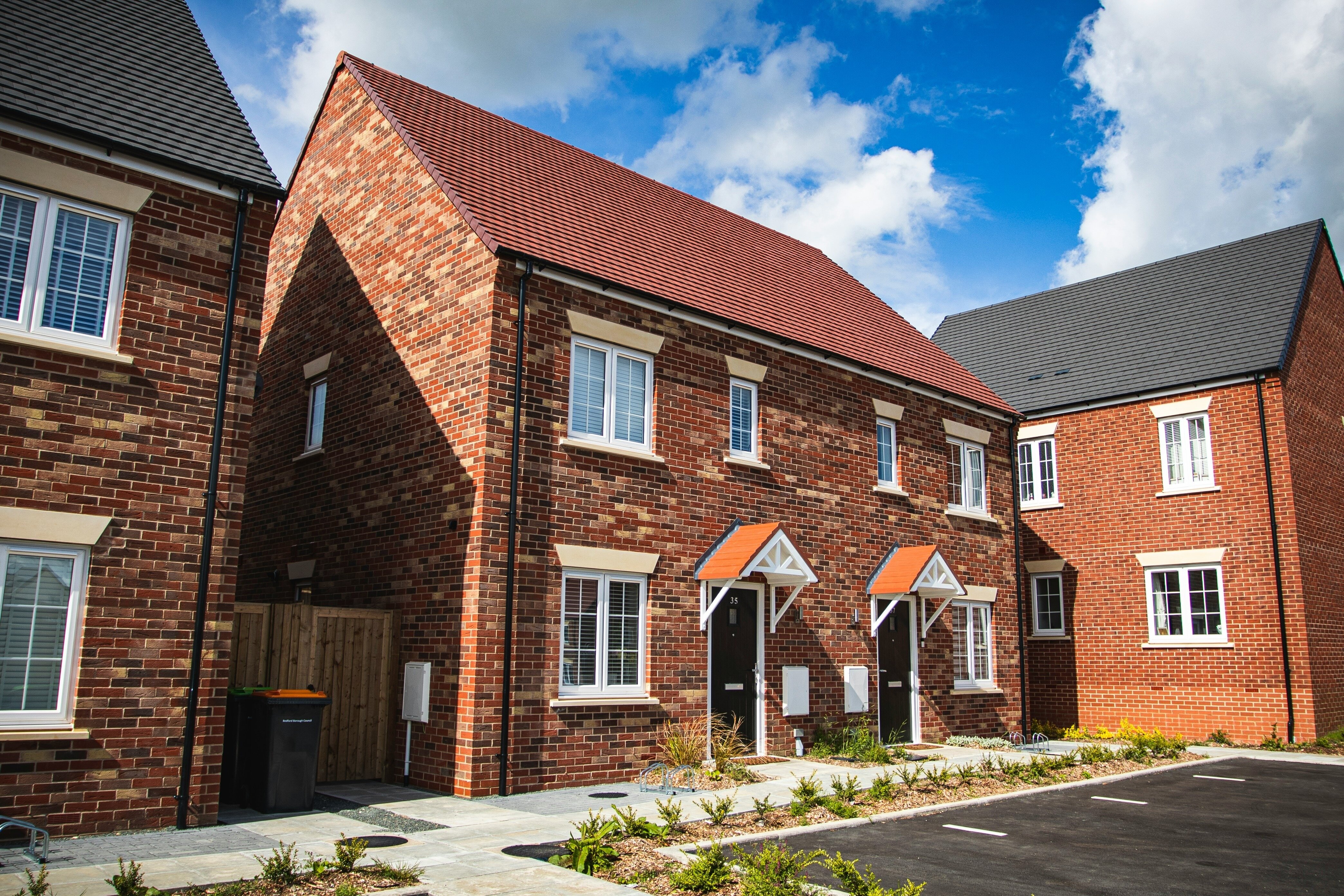
- 12 May 2025
- Law Blog
- Residential Property
One of the advantages of buying a new home is that it should come with a guarantee from the builder. Likewise, if you are buying a property which the seller has recently improved, it may benefit from a guarantee or warranty covering that work. These can provide peace of mind, but how valuable are they in practice and can you rely on them?
‘Guarantees and warranties can take some of the worry out of owning a home,’ acknowledges Kimberley Rose, Deputy Head of Residential Property. ‘However, you should not let them lull you into a false sense of security. Not all guarantees and warranties provide the protection they appear to, and in some cases the benefit may not pass to you as the buyer.’
Here she answers some of your questions and guides you through this tricky topic.
What are guarantees and warranties?
In a guarantee, one party takes on responsibility for the default of another. Strictly speaking, a guarantee must be in writing and signed by the person giving it. For example, a parent company may guarantee the work of its house-building subsidiary. If, because of the latter’s poor workmanship, a house suffers damage during the guarantee period, the guarantor will step in to rectify it even if the builder no longer exists or has become insolvent.
A warranty is a written promise that something is of a certain specified quality. A guarantee may include warranties, but you often find warranties as separate independent documents. The person giving the warranty often does not have a direct contractual relationship with the recipient. For example, a developer asks a builder to construct a new home. The builder then employs an architect for the design input. There is no direct relationship between the developer and the architect, nor between the architect and the buyer of the new home. If the architect fails to do a good job, the developer, and subsequently the home buyer, may find it difficult to claim against them. A warranty helps overcome this difficulty. If there is a design problem, covered by the warranty, the architect is responsible for putting it right, and the person with the benefit of the warranty can enforce this.
Which is better, a guarantee or a warranty?
In practice, the two terms are used very loosely. Indeed, there is often a lot of confusion over them; the term ‘guarantee’ often being used to describe any promise about an item’s quality.
One is not better than the other. They are really just different ways of structuring third-party protection. Some arrangements may even combine elements of the two. For example, a structural warranty can be (and often is) underwritten by a third-party insurer. The most important thing is to understand how the guarantee or warranty works, which means considering its individual terms and conditions. Your solicitor will discuss this with you to enable you to assess the impact on your purchase and home ownership.
When should I expect a guarantee or warranty?
Every situation is different. However, if you are buying a brand-new home from a developer, or one built in the past ten years, you would ordinarily expect a new build warranty. The level of cover varies, depending on the provider, but typically it covers defects in the builder’s work for the first two years following construction. After that, cover is usually limited to major structural problems which arise during years three to ten.
If you are buying an individual architect-designed home, the situation is likely to be more complex. There should be an architect’s certificate or structural warranty. These provide different levels of protection, and it is important your advisor checks the terms carefully. Typically, if you are borrowing to finance your purchase, your lender will require an insurance-backed structural warranty. Your solicitor can advise you on your lender’s exact requirements.
You may also reasonably expect a guarantee or warranty where the property has had recent structural work or some major addition or change. This could, for example, include damp-proofing, new windows or doors, a heating system or solar panels, electrical work, timber treatment, a septic tank or sewage treatment plant, or insulation.
How do I find out about guarantees and warranties?
If you are considering a brand-new home, ask the developer about cover when you are viewing. Over 70 per cent of new builds are covered by the NHBC Buildmark Warranty. However, there is a wide range of options on the market, so it is a good idea to get as much information as you can. You can then assess the benefits and factor this into your decision-making process.
When you are viewing a resale property that has had recent improvements or additions, ask the seller or estate agent whether they are covered by a guarantee or warranty. If you decide to buy it, tell your solicitor. They can then follow up on the documentation.
In any case, as part of their pre-contract enquiries, your solicitor will ask the seller about guarantees and warranties. If you are aware of any work which you think should be covered, mention this to them as soon as possible. This will give them the opportunity to consider any issues early on, which may affect how you approach your transaction.
How good are the guarantees or warranties on offer?
Unfortunately, the existence of a guarantee or warranty does not mean you will automatically be covered if something goes wrong. You, and your professional advisors, will need to assess the protection offered. In doing so, you should consider the following:
- What are the terms and conditions of the guarantee or warranty? What are the exclusions?
- How long has the guarantee or warranty left to run?
- How reputable is the company giving the guarantee? Will it be around long enough to honour any claim?
- Is the guarantee or warranty insurance backed?
- Have any claims already been made under the guarantee or warranty, and what impact will that have on any future claim?
- Can the benefit of the guarantee or warranty be transferred? If so, what needs to happen?
The answers will let you assess the level of protection and whether it meets your needs. If you are borrowing to fund your purchase, your mortgage lender is also likely to have some minimum requirements.
Not all guarantees or warrantiesare equal. For example, a structural warranty from a reputable provider, underwritten by an ‘A’ rated insurer, should give more reassurance than a guarantee from a company with no track record. Even if the warranty or guarantee is backed by a well-known name, it is important to check it can be transferred to you. Some are not transferable, or are limited in the number of transfers, which could render their value nugatory.
The answers may also highlight further action you, or your advisors, need to take. The benefit of some warranties or guarantees transfers to a new owner automatically. Others, however, require some additional action, such as giving notice.
What should I do if there is no guarantee or warranty?
Knowing which guarantees or warranties cover the property is important for two reasons:
Firstly, it allows you to assess better the level of risk. In the absence of cover where you might expect it, you can consider how likely this is to be an issue in the future, and the cost of remediating if necessary. Take the example of a boiler that is outside its warranty period. Looking at its service history, you could take the view that it should continue to function well for some time. Alternatively, you could decide to factor in the cost of a replacement.
Secondly, it allows you to control that risk and to address any issues. For example, if you are concerned about the structure of the property, you could ask your surveyor for their opinion or seek the advice of a specialist, such as a structural engineer. It may also be possible to obtain a structural warranty retrospectively. You could consider reducing your price to reflect the cost of this or requiring the seller to get one as a condition of your purchase.
How we can help
We have a wide range of experience in all types of conveyancing transactions, including new build and custom-build. If you instruct us, we will confirm which warranties and guarantees cover your purchase and the protection they provide. Equally as important, where there is an issue, we will work with you to explore ways to reduce any associated risk, for example, through taking out a warranty retrospectively or negotiating a price reduction.
For further information, please contact a member of your local Residential Property Team.
Image by James Feaver on Unsplash




 Kimberley Rose
Kimberley Rose